Spotlight on a Road Scholar International Group Leader
I’m Lizzie from Road Scholar. A Taste of Costa Rica is a learning adventure that holds a special place in my heart. I often think back to the vivid colors, the tropical and cultural warmth of the country, the sweetest fruits to ever touch my taste buds and, of course, those magical rainforests. But one of my fondest memories is of the Group Leader who introduced us to his country, and the impact he made.
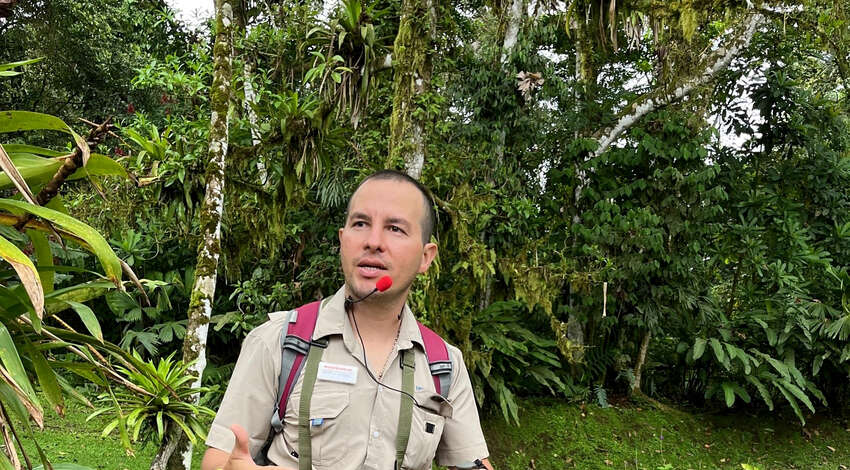
Deinor Alfaro
Group Leaders are one of the key ingredients that make a Road Scholar journey unique. And Deinor Alfaro, a certified naturalist and expert birder, is one of them. He has touched the lives of countless participants who have been lucky enough to see Costa Rica through his eyes (and his telescope!).
One day during the course of our program, between lunch at with a local family and a pre-dinner dance lesson, I asked Deinor to sit down for a casual interview. To set the scene, we sat in rocking chairs alongside the Sarapiquí River as an array of birds danced through the air, surrounding us with the blissful pura vida that Costa Rica is known for.
I was curious to learn Deinor’s take on being a Group Leader, the finesse it must require incorporating everyone’s individual personalities into a cohesive group and what it takes to provide a satisfying learning adventure for all.
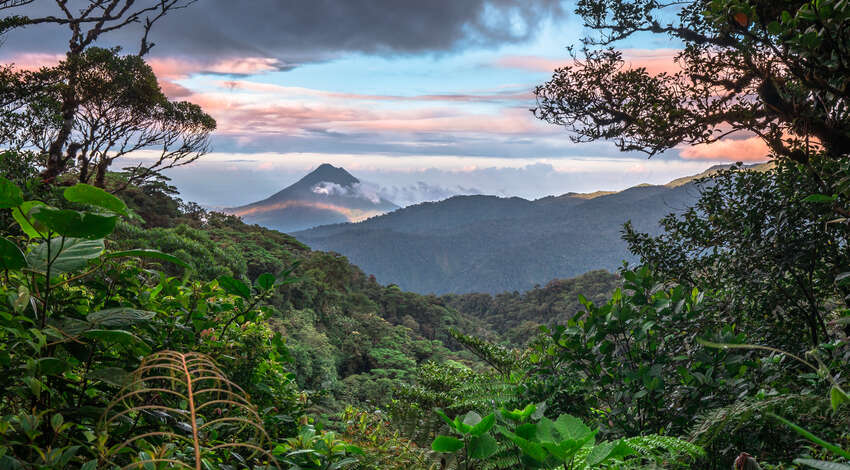
L: First off, Deinor I’d appreciate any advice you can share with me about the dance lessons on this evening’s agenda. You see, I have two left feet, so how the heck am I going to learn to salsa and merengue?
D: You just need to feel it. I know, for some people, it’s not in their blood.
L: I’d be one of them.
D: But, if you have the right attitude and you stay positive, you will be able to do it. And we have a great local teacher. Joanna is going to encourage you, even if you don’t know anything. She’ll get you up and dancing!
L: You know what I like about your style as a Group Leader? The way you’ve encouraged us to get to know one another from the very first day. We’ve been laughing together while taking part in unusual activities that some of us have never tried before. So, what’s your secret to successful group leadership?
D: Well, I would say that the first thing you need when you do this for a living is passion. Me? I really love being a Group Leader, so I do it with passion. Plus, through the years, I’ve had a lot of experiences traveling, and that’s made me better able to do my job. Another important thing is to be humble. Because once you believe you are the best, then you stop growing. The values that my family has taught me since I was little are to be humble, ready for new adventures and willing to learn anything that will help me do my job better every day.
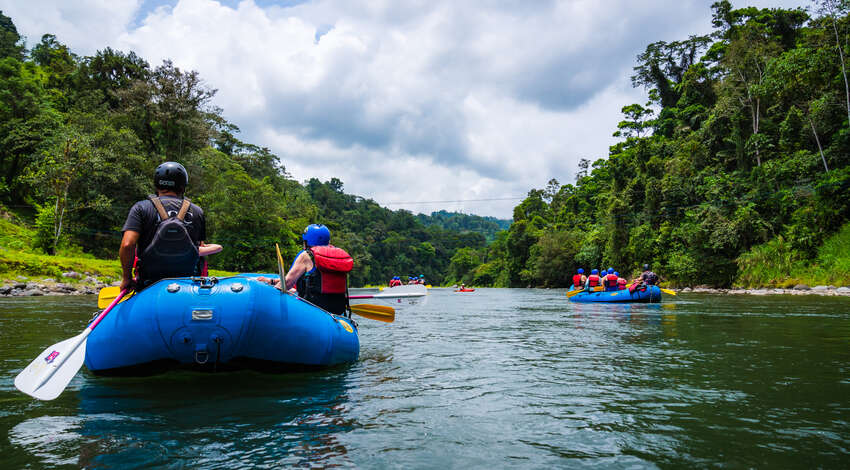
L: People come to Costa Rica for the first time on a learning adventure and they have expectations or perhaps even preconceived notions. I like that you asked each member of our group during orientation what their expectations were for this program so that you could do your best to fulfill everyone’s wish list during the time we were here.
D: This is something I have learned. People have different expectations. It might be about a food they want to try, an activity they want to do — like hiking to a waterfall or spotting a sloth. Just this morning when we went rafting, one of the participants came to me to say they’d never seen a parrot in the wild. So, I looked up into the forest with my telescope to find a few parrots in the treetops that they could view through my lens. Many times, I know just where to look to find what they’re hoping to see.
L: You have a top-of-the-line telescope that you invested in just for the purpose of helping group members see the wildlife up close, along with impressive camera lenses you use to capture wildlife photos for the group members. Whether we’re in a jungle or a cloud forest, you know which kind of tree each animal is likely to be eating, resting or nesting in. You get up before 6 a.m. each morning for any participant who wants to go birding before breakfast. Even beyond that, you’ve shared so many of your personal stories with us so that we can get to know you better.
D: I believe that when you go to visit a country, one way to get to know a lot about that country is to meet the locals. So, since Road Scholars are traveling with me — a local — I have the chance to tell you how my family lives, what we eat, what we like. All of that’s a good way to get to know about my country.
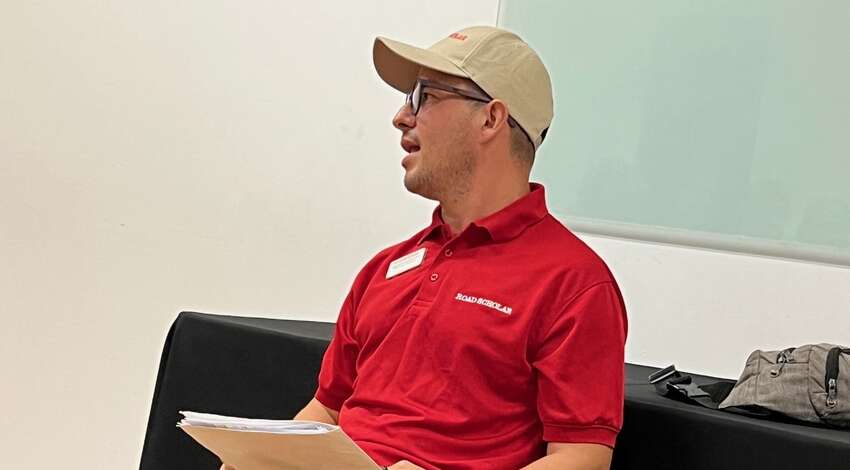
L: Today you took us into a local family’s home. The 11-year-old shared with us his speech about honey that he had written for school, since the family raises bees. And his little sister served up delicacies that her mom had prepared for us with homegrown ingredients. It felt so good to help support that family by visiting their small farm. Is this one of the reasons you encourage people to visit Costa Rica?
D: Well, I believe we have a lot of things to teach visitors from other countries. The nature, the flora and fauna, the birds and other animals, the farming, the culture. There are also opportunities here to enjoy adventurous activities like hiking, rappelling and zip lining. When Road Scholars visit for the first time, I talk to them about getting out of their comfort zone and encourage them to try new things. Sometimes these things are not at all like at home, but it’s good to try something new.
L: Because our group has become more like a family, when it came time to do something outside our comfort zones, like walking across hanging bridges high above the tree canopies, if one group member was hesitant, another would step in and say, “Don’t worry, I’ve done this, you can do it, it’s going to be great!” Our group really supported each other.
D: You have all become a team. That’s one of the goals of every program. We need to become a team and become a family so that we can all work together. That’s really important to achieve successful adventures throughout Costa Rica.
L: Explain what the phrase “pura vida” means to you.
D: What pura vida means for Costa Rican people, if you translate it from Spanish to English, is “pure life.” But it’s more than that. For us, it’s a way to say “thank you.” Or, instead of saying “you’re welcome,” you can say “pura vida.” Also, it’s a greeting. Every morning, I say “Pura vida, everyone!” And it can be the reply to a question like “How was the rafting?” You’d say, “Pura vida,” to mean “Great, awesome, I had an excellent time.” So “pura vida” means a lot of things to us.
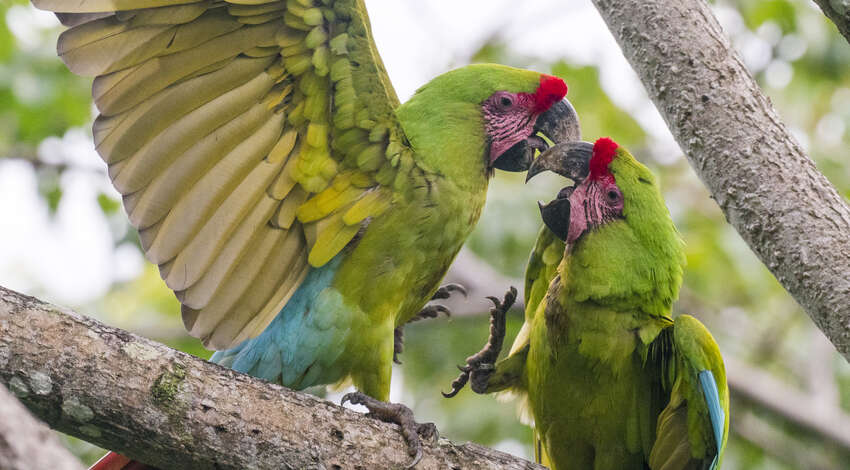
L: There are so many activities packed into these learning adventures. No wonder Costa Rica was chosen as our 2024 Campus of the Year.
D: The idea for any of the programs is to have you experience and learn as much as you can while you’re here. Learning is the number one value of Road Scholar. So that’s why we teach you about the rain forests, the cloud forests, how pineapples are grown. Boating along the river introduces you to so much of our wildlife — monkeys, iguanas, many different types of birds and even crocodiles. La Fortuna is an incredible place where we have the chance to see the Arenal Volcano. Costa Rica’s full of volcanic formations — more than 200. And going up to the cloud forests and into the little villages of Monteverde and Santa Elena gives you an opportunity to learn about the Quakers. A group of them came here from Alabama in the 1950s and created a settlement — establishing a whole community up in the mountains. They’ve lived there ever since, mixing with and marrying the local people.
L: A lot of solo travelers come to Costa Rica with Road Scholar because there is a level of trust that they feel with us. They come alone but leave with new friends. And that’s thanks to Group Leaders like you.
D: It’s been a pleasure for me to run these programs and meet so many Road Scholars, including you. But now, it’s time for less talking and more dancing. I cannot wait to go and do some salsa moves. Pura vida!
L: Okay, let’s get out there and dance. Pura vida!
